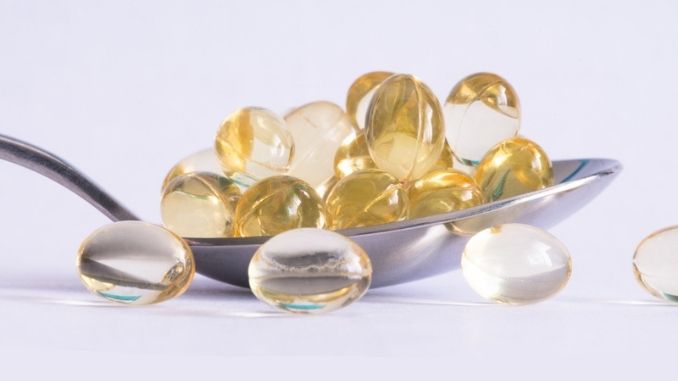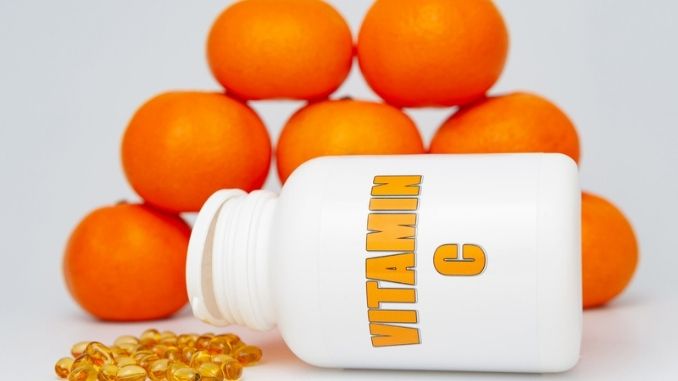Your immune system is a complex matrix of cells and proteins that safeguard your body against infection. Your immune system records every germ (microbe) it has ever defeated so it can recognize and destroy that microbe quickly if it enters your body again. Immune support supplements work by boosting your body’s natural defenses against disease-causing microorganisms so you stay healthy and strong. They contain vitamins, minerals, and other nutrients that help your body fight off disease and keep you from getting sick too often.
What is Immune System
The immune system can be activated by many foreign particles that the body doesn’t recognize as its own. These are called antigens. Examples of antigens include the proteins on the surfaces of bacteria, fungi, and viruses. When these antigens attach to special receptors on the immune cells (immune system cells), a whole series of processes are triggered in the body. Once your body has come into contact with a disease-causing germ for the first time, it usually stores information about the germ and how to fight it. Then, if it comes into contact with the germ again, it recognizes it straight away and can start fighting it faster.
Therefore, without an immune system, you would have no way to fight harmful entities that enter your body from the outside or harmful changes that occur inside your body.
Your immune system is generally ready for anything you can throw, but it can only handle so much. For example, stress has a significant impact on your immune system. When you experience stress, a series of events releases cortisol, adrenaline, and other stress hormones from your adrenal glands to help your body cope with the stress. Usually, cortisol is helpful because it decreases the inflammation in your body that results from the immune responses caused by stress. But when you’re’ immunocompromised, your immune system’s defenses are low, affecting its ability to fight off infections and diseases.
Immunocompromised
A person is said to have an immune deficiency or be immunocompromised when their immune system is incapable of working at total capacity. When your immune system isn’t working at full capacity, it doesn’t have the army of immune cells and mediators ready to mount a defense at the first sign of attack. This means that infections may progress more rapidly from a mild virus into sepsis, a widespread disease leading to malfunctioning the body’s organs.
Therefore, someone who is immunocompromised will usually get sick more often, stay ill longer, and be more susceptible to different types of infections.
There’s no standard scale for quantifying a person’s immunocompromised, but a particular type of white blood cell, called a neutrophil, can be one indicator of risk.
When neutrophil levels drop below 1,000 cells per microliter, patients” susceptibility to infection increases significantly. And if their grades drop under 500, patients” risk rises even higher. Low neutrophil counts are referred to as Neutropenia.
Causes of Immunosuppression
Chronic conditions that affect the immune system include heart disease, lung disease, and diabetes. Autoimmune diseases, such as asthma, lupus, multiple sclerosis, and rheumatoid arthritis, are also conditions that may bring forth immunodeficiency. Other conditions that can leave a person immunocompromised include cancer, HIV/AIDS, malnutrition, and rare genetic disorders. Chemotherapy and steroids can also lower your immunity. They suppress the body’s ability to activate its immune defenses by destroying immune cells or blunting the cells” ability to spot and kill bacteria.
How Do You Know If You Might Be Immunocompromised?
1. Your Stress Level is Rocket-High
Stress decreases the body’s lymphocytes, the white blood cells that help fight off infection. The lower your lymphocyte levels, the more you risk for viruses like the common cold.
2. Frequent Episodes of Colds
It’s’ perfectly normal for adults to sneeze and sniffle through two or three colds each year. But if you’re’ constantly catching colds or have a cold that won’t run its course – that’s a clear sign your immune system is struggling to keep up.
3. Gut Problems
If you have frequent diarrhea, gas, or constipation, it could be a sign that your immune system is compromised. Research shows that nearly 70 percent of your immune system is located in your digestive tract. The beneficial bacteria and microorganisms that live there defend your gut from infection and support the immune system.
4. Slow Healing Wounds
Your skin goes into damage control mode after you get a burn, cut, or scrape. This is because your body works to protect the wound by sending nutrient-rich blood to the injury to help regenerate new skin. This healing process depends on healthy immune cells. If your immune system is sluggish, your skin can’t’ regenerate as needed. Instead, your wounds linger and have a hard time healing.
5. Fatigue
If you’re getting enough sleep at night and are still suffering from exhaustion, your immune system might be trying to tell you something. When your immune system struggles, so do your energy level. That’s because your body is trying to conserve energy to fuel your immune system so it can fight off germs
6. Prone to Infection
Compromising the body’s ability to fight infections makes a person more vulnerable to developing diseases.
Natural Ways to Boost Your Immune System
Maintain a Healthy Diet
Like most things in your body, a healthy diet is a key to a robust immune system. This means ensuring you eat plenty of vegetables, fruits, legumes, whole grains, lean protein, and healthy fats.
Exercise Regularly
Physical activity isn’t just for building muscles and helping yourself de-stress — it’s also essential to being healthy and supporting a healthy immune system. Exercise may improve immune function by boosting your overall circulation, making it easier for immune cells and other infection-fighting molecules to travel more efficiently throughout your body. Studies have shown that engaging in as little as 30 minutes of moderate-to-vigorous exercise daily helps stimulate your immune system. This means focusing on staying active and getting regular exercise is essential.
Hydrate
Water plays many vital roles in your body, including supporting your immune system. Fluid in your circulatory system called lymph, which carries essential infection-fighting immune cells around your body, is primarily made up of water. Dehydration slows down the movement of lymph, sometimes leading to an impaired immune system. Even if you’re not exercising or sweating, you’re constantly losing water through your breath and your urine and bowel movements. To help support your immune system, be sure you’re replacing the water you lose with water you can use — which starts with knowing how much water you need.
Get Enough Sleep
Sleep certainly doesn’t feel like an active process, but plenty of essential activities are happening in your body when you’re not awake — even if you don’t realize it. For instance, critical infection-fighting molecules are created while you sleep. Studies have shown that people who don’t get enough quality sleep are more prone to getting sick after exposure to viruses, such as those that cause the common cold. To give your immune system the best chance of fighting off infection and illness, it’s essential to know how much sleep you should be getting every night and the steps to take if your rest is suffering.
Manage Stress
Stress is different for everyone, and how we relieve the pressure is, too. Whether it comes on quickly or builds over time, it is essential to understand how stress affects your health, including its impact on your immune system. During a period of anxiety, particularly chronic stress that’s frequent and long-lasting, your body responds by initiating a stress response. This stress response, in turn, suppresses your immune system, increasing your chance of infection or illness. Given the effect it can have on your health, it’s essential to know how to identify stress. And whether deep breathing, meditation, prayer, or exercise, you should also get familiar with the activities that help you reduce stress.
Supplements for Your Immune System
While proper diet and nutrition are vital for maintaining a healthy immune system, many supplements have been proven to boost your immune response.
1. Vitamin D
Vitamin D is a fat-soluble nutrient essential to the health and functioning of your immune system. It enhances the pathogen-fighting effects of white blood cells, such as monocytes and macrophages, that are critical players in your immune defense system, decreasing inflammation, which helps promote an immune response. Some studies show that supplementing with Vitamin D may improve your immune response. Recent research suggests that taking this vitamin may protect against respiratory tract infections.
2. Zinc
Zinc is a mineral commonly added to supplements and other healthcare products like lozenges meant to boost your immune system. This is because zinc is essential for immune system function. Zinc is needed for immune cell development and communication and plays a vital role in an inflammatory response. It also protects tissue barriers explicitly in the body and helps prevent foreign pathogens from entering. A zinc deficiency significantly affects your immune system’s ability to function correctly, resulting in an increased risk of infection and disease, including pneumonia.
3. Vitamin C
Vitamin C is perhaps the most popular supplement to protect against infection due to its essential role in immune health. This vitamin supports the function of various immune cells and enhances their ability to protect against disease. It’s’ also necessary for cellular death, which helps keep your immune system healthy by clearing old cells and replacing them with new ones. Vitamin C also functions as a powerful antioxidant, protecting against damage induced by oxidative stress, which occurs with the accumulation of reactive molecules known as free radicals.
Eating a nutrient-dense, balanced diet, getting enough sleep, engaging in regular physical activity, and not smoking are some of the most important ways to help keep your immune system healthy and reduce your chances of infection and disease. These vitamins are just some of the substances researched for their immune-enhancing potential. However, although these supplements may offer a small benefit for immune health, they should not and cannot be used as a replacement for a healthy lifestyle.
Click here to learn how to safely and naturally boost your immune system.
















